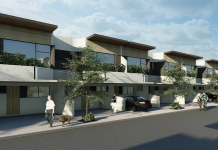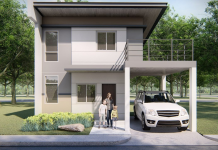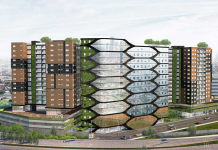
When Philippine home prices increased by 27.1 percent during the second quarter of 2020, many people were left confused. After all, how could there be such a jump during the middle of the COVID-19 pandemic? The answer was simple. More time was needed for the Philippine property market to feel the impact.
Bangko Sentral ng Pilipinas (BSP) reported that home prices fell in the country by 14.1 percent in the third quarter of last year and were down 0.4 percent year-on-year. This was actually the first year-on-year decline in home prices since the BSP began publishing the information in 2016.
Years of strong performances were no match for COVID-19 although it wasn’t entirely bad news. According to the BSP, prices for condominium units fell 15 percent year-on-year, but townhome prices rose by 12 percent and prices for detached/attached housing increased by 7.4 percent.
Many developers in the townhome and housing segments have reported steady sales which supports these numbers from the BSP.
Developers find success catering to the “New Normal”
Vista Land reported that changing consumer habits saw more buyers in the market for homes and larger spaces that accommodate the ‘new normal”. The developer’s house and lots subsidiaries, including Crown Asia, were well positioned to take advantage of the shift in demand.
“This pandemic has impacted our performance for the first half of 2020 and we still expect the rest of the year to be challenging. However, we are happy to see encouraging signs for both our residential and leasing businesses,” Vista Land Chairman Manuel B. Villar, Jr. told the Manila Bulletin.
BRIA Homes also saw steady sales last year and is optimistic about 2021. In an interview with ABS-CBN, BRIA Homes President Red Rosales explained that the current health situation taught Filipinos the importance of knowing priorities. He added that work-from-home and online learning setups made Filipinos focus more on how their families can have a safe, secure, and comfortable lives moving forward which has led to greater demand for housing.




















